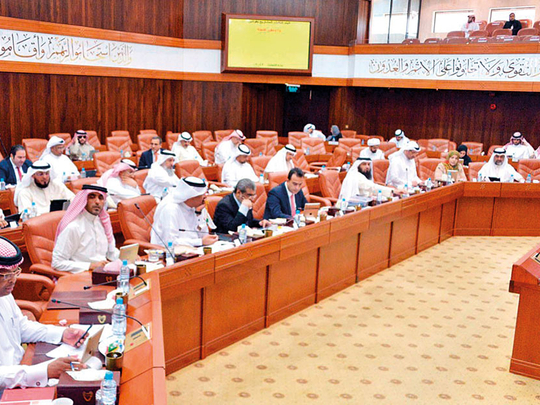
Manama: Bahrain’s Council of Representatives has approved a unified family draft law that aims to improve the legal status of women after 32 lawmakers voted in its favour.
The support for the draft law was achieved following a string of arguments in which the lawmakers insisted that it will protect the unity of families and strengthen its social fabric.
Justice Minister Shaikh Khalid Bin Ali Al Khalifa on Thursday said that the new family law would reinforce the status of the state and consolidate the rule of law.
“The new law in its current form will establish a new phase of strengthening the social fabric of the family in Bahrain,” he said, following the unanimous vote by the Council of Representatives.
“I did take part in some of the sessions of the religious committee and I was proud of their patriotism and their keenness on religious ethics, values and the specificities of each sect.”
All the articles in the proposed law were supported by the lawmakers following the recommendations presented by a religious committee set up by King Hamad Bin Eisa Al Khalifa and compromising religious scholars from the Sunni and Shiite sects, the main components of the Bahraini society.
The draft law consists of 141 articles dealing with the provisions of engagement, marriage, custody, alms, alimony, and divorce, according to the Sunni and Shiite jurisprudence.
The draft will become law after it approved by the Shura Council, the upper house of the bicameral parliament, and passed on to the government.
When it comes into force as expected, it will be applied to all family matters regardless of the sects and will not be amended unless a committee of religious scholars from both sects appointed by the king approves the changes.
The new law will abolish the Sunni section of the current family law that was approved by the parliament in May 2009.
The Shiite section was never promulgated after Shiite MPs refused to endorse or even discuss a draft law that governs personal status and family matters such as marriage, divorce and custody.
Their stance reflected the uncompromising rejection of such legislation from senior Shiite leaders in Bahrain.
According to the religious leaders, the parliament is not qualified to debate or decide on family matters rooted in religious jurisprudence.
Only top Shiite references, such as Iraq-based Ayatollah Ali Al Sistani, can legislate on such matters and his decisions must not be altered or amended by any authority in Bahrain, they said.
The government in early 2009 submitted a draft for both Sunnis and Shiites to the parliament, but eventually withdrew it after the Shiite leaders opposed it vehemently. The government in March that year reintroduced only the Sunni section of the draft, to the great dismay of Shiite women’s rights activists.
The Sunni family law draft was passed in a matter of minutes with only three Salalfi lawmakers rejecting it.
However, several NGOs and activists have been calling for going forward with a common family law that would affirm the civil status of the kingdom, and regardless of the opposition of some religious groups.
Following the Council of Representatives’ approval of a unified family law, several women activists expressed satisfaction over it.
“This is a new birth for Bahraini women and a grand chance to preserve their dignity and protect their rights fully,” MP Jameela Al Sammak said. “It is a source of great pride, especially that, in line with the projects launched by King Hamad and with the spirit of the National Action Charter, it makes all people equal as for their rights and duties.”
Shura Member Nancy Khedhouri said that the law would help women secure more rights.
“It will help with the progress of women and society in general,” she said. “It will elevate all women in Bahrain to their rightful levels, giving them all their rights as the law will address all loopholes.”












